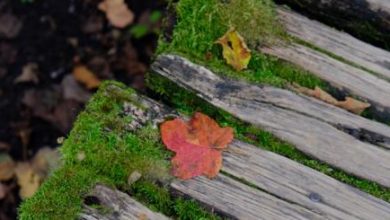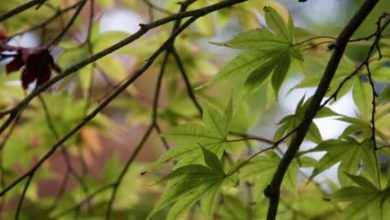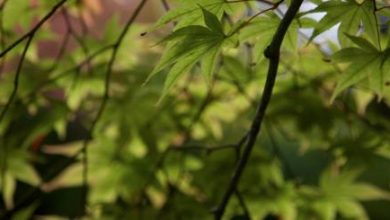THE ART OF DA’WAH PART 2

Sincere Advice
Allah often uses the phrase “struggle in His path”, because the word struggle connotes elements of difficulty. All of us were created with various deficiencies and shortcomings, even the Prophets and Messengers. We have to return the issue to Allah and start the real struggle in His path, starting with the desire and zeal.
Du’a by itself is meaningless if not followed up by effort and action. If we do not continue with the effort, then we are liars because we are not connecting our hearts with our du’a. We still carry arrogance within us. If the first element of denying yourself does not occur, you will not escalate to the second step, which is the development of your quality and manner, with the help of Allah.
What happens if we do not have enough quality and manner? The surroundings cannot be blamed. Rather, it means that the denial of our desires and ego is not complete. This is consistent with “La Ilahailla-Allah” which is the denial of everything except for Allah.
If you work for Him, nothing will happen at first, despite your efforts. This is Allah telling you that you are not ready, because the connection with your Creator is still underdeveloped.
This means that every time we talk to others about Allah, we should remember that the message is not for them, but primarily for ourselves. We have to foster the good manner first and translate our words into action, and this will be put to the test by Allah in various ways.
Even if Allah accepts you, He will give you many trials to test your sincerity and truthfulness towards Him. Even after He accepts you, it does not mean that He will give you immediate results. People get discouraged and give up, because they fail to fully accept that the results lie in the hands of Allah, the Doer and Organiser.
How do you work for Allah?
- Who you are and who you are working for
You have to ask Allah to give you. Inviters are like farmers. We have land, but a successful crop is achieved with wisdom. The seeds must be compatible with the soil and the climate, and requires proper nurturing. Similarly, we must choose the right target by asking help from Allah to point us in the right direction. When we scatter seeds on the ground, be prepared that some start growing after a couple of days, or a week, and some seeds don’t grow at all. The farmer will not know which one will give him seedlings. Even when the tree grows, the farmer will not know the quality or taste of the fruits that each tree will give him.
You can even grow the same plant in the same soil, but the other conditions might have changed. Maybe the soil quality has changed, or maybe you are planting the tree in the wrong season.
It is the same with da’wah – we must think of Allah constantly, and also ask Allah to guide us on the situation. This is what Rasulullah SAW used to do – he used to go to the cave, perform zikr and pray. We must make sure that before embarking upon anything, to ask Allah and have faith. We should sow the seeds with optimism– our efforts might bear fruit ten years later!
Be patient, trust and rely on Allah, and remember you are only a tool.
- The Importance of Companionship
The journey of da’wah requires one to be in the companionship of a suitable role model, to constantly remind, emphasise and keep him steadfast. The environment is crucial, because human beings are easily affected by their environment. Whether our personalities, or choice of diet, we believe in the truth of our habits even if there is no benefit to it. With repetition and exposure, one starts to believe in what he is doing, be it right or wrong. If you live with someone who listens to a particular kind of music, you will eventually like the same music. You will form similar interests, even if you were not interested in it a couple of years previously. We have to sit in the right environment, and to ensure that the person we are reaching out to is sitting in the right environment too. That means that we have to seek Allah, to ask Allah for purification, strength and ability. We will build habits and customs according to the environment, which will shape our manner, conduct and character. The more time we spend with a role model, the more we will get educated and absorb his mannerism and qualities.
The Muslim ummah tends to implement knowledge harshly, but are very weak in substance, because the knowledge is that of an academic nature and not of action, role model or quality. When you try to sit with the learned and try to absorb their knowledge, sacrificing their time and efforts, Allah will grant you the knowledge, gentleness and manner.
- Value and be ready to sacrifice
The more we understand our duties and what Allah commands us to talk about and warned us against, the more we will understand the responsibility attached to it and the more we will perform. This is a duty, not merely something that others invite us to. It is not a trivial message, it is the message of Allah.
Once we feel responsible, we will seek and search and try. This will require unswerving sacrifice of our time, money and energy. Sacrifice is key, because this deen and way of life is not just a discussion or study circle. We have to sacrifice through all avenues. The more we exert ourselves, the more Allah will give us power. Honesty and sincerity come from subordinating our arrogance and ego, putting our noses down and serving mankind.
- The most exalted job ever given to mankind
Da’wah does not come cheap. Khadijah RA was one of the richest women in the Arabic Peninsula, but by her death, she had spent every last penny in the path of Allah and barely had enough to eat. When she was dying, Jibril AS gave her good tidings of her special palace in jannah because of the level of sacrifice she made to spread the call of Islam. She left a legacy that none of the other wives of Rasulullah SAW could measure up to her level of sacrifice and support.




